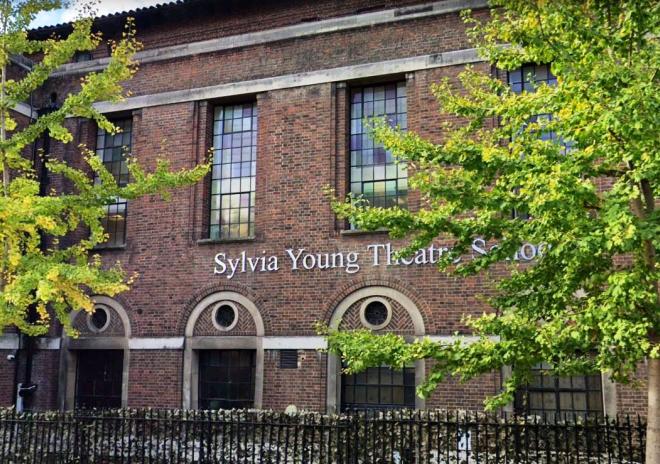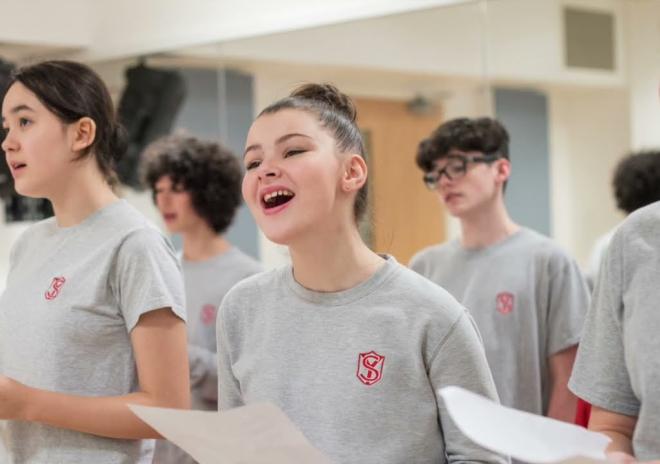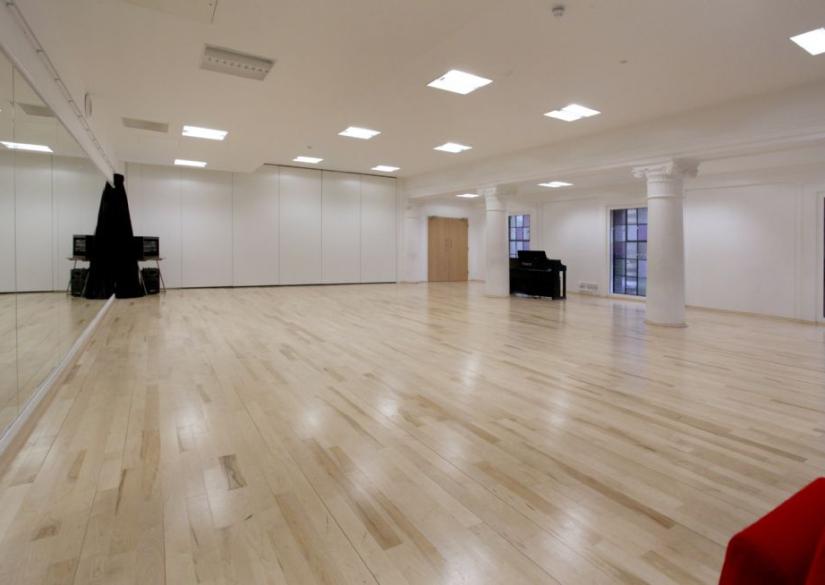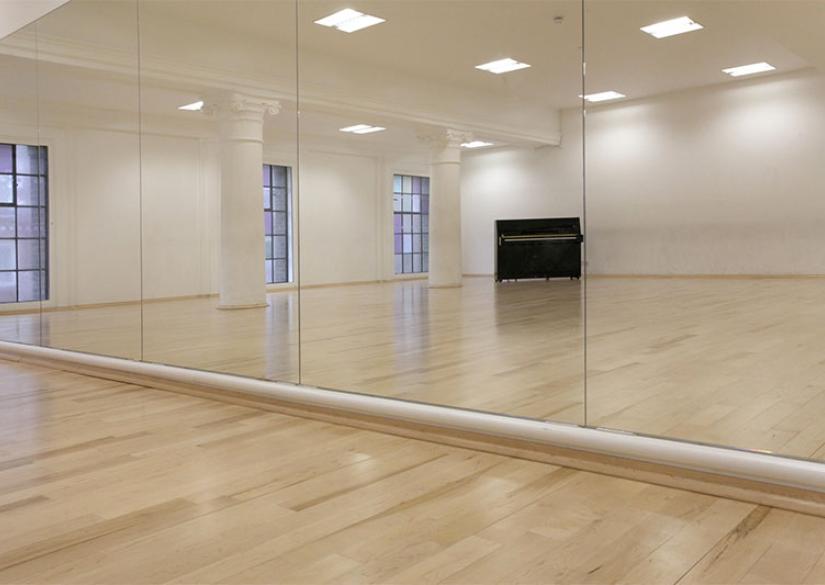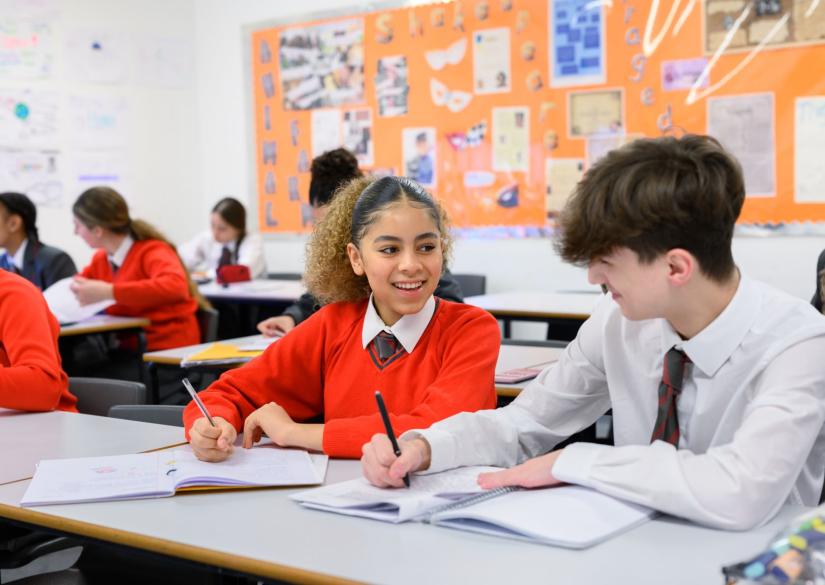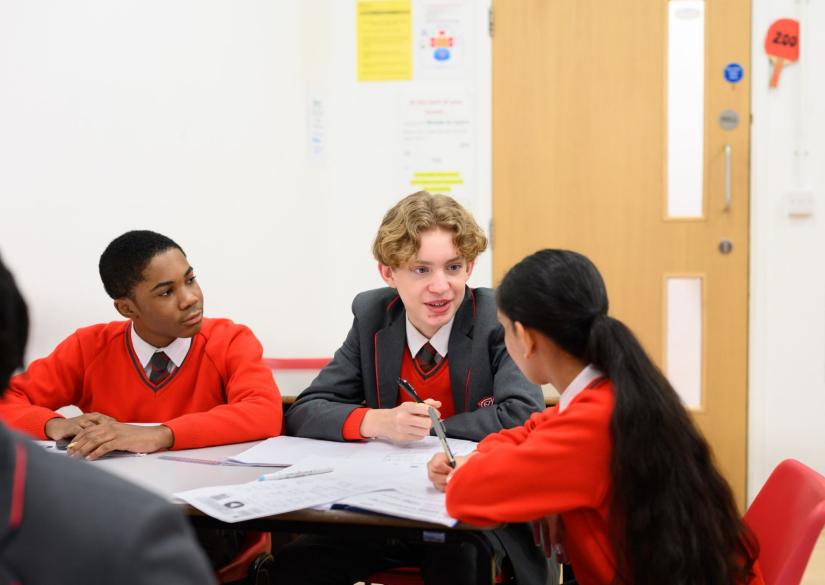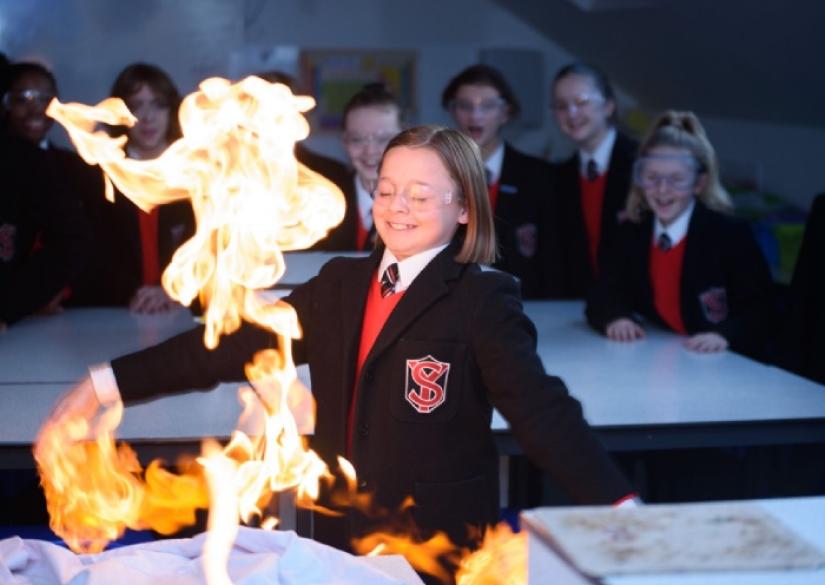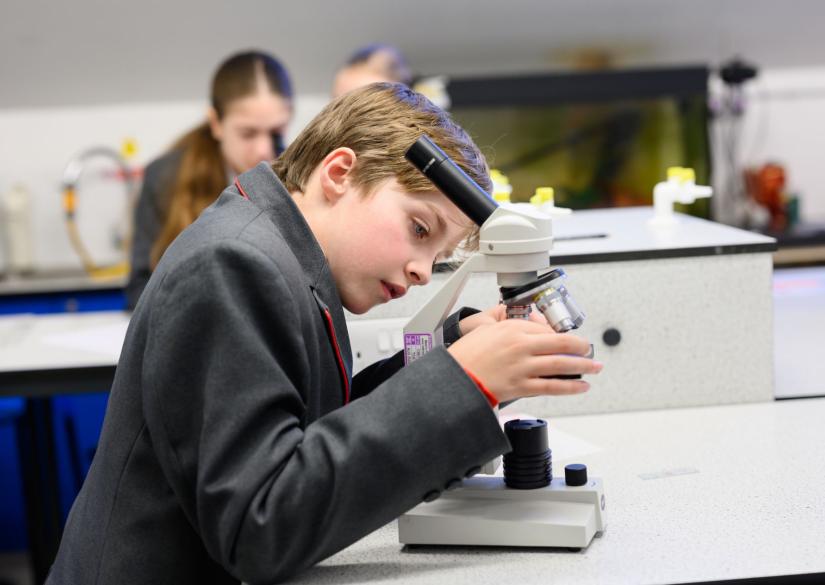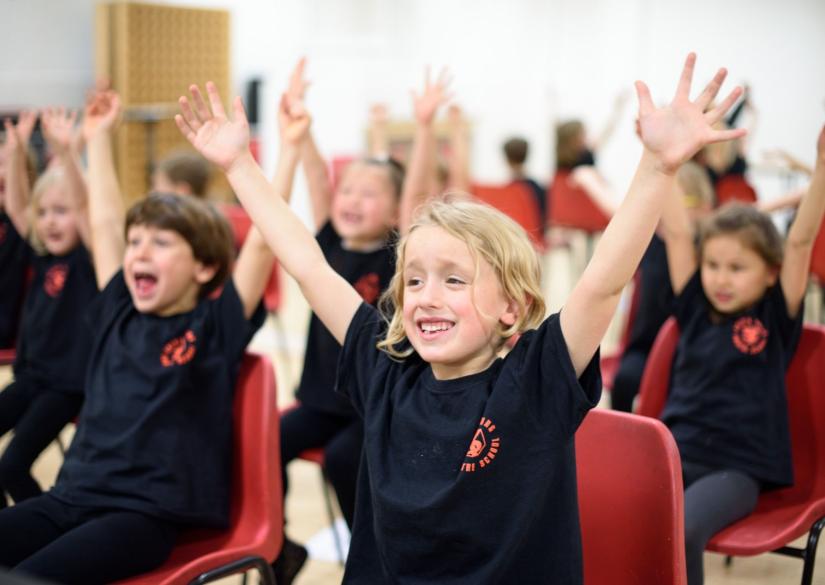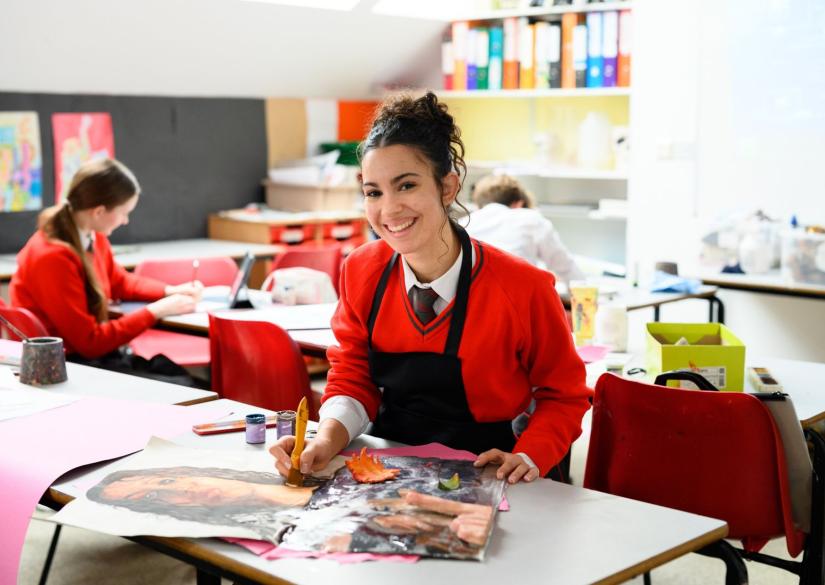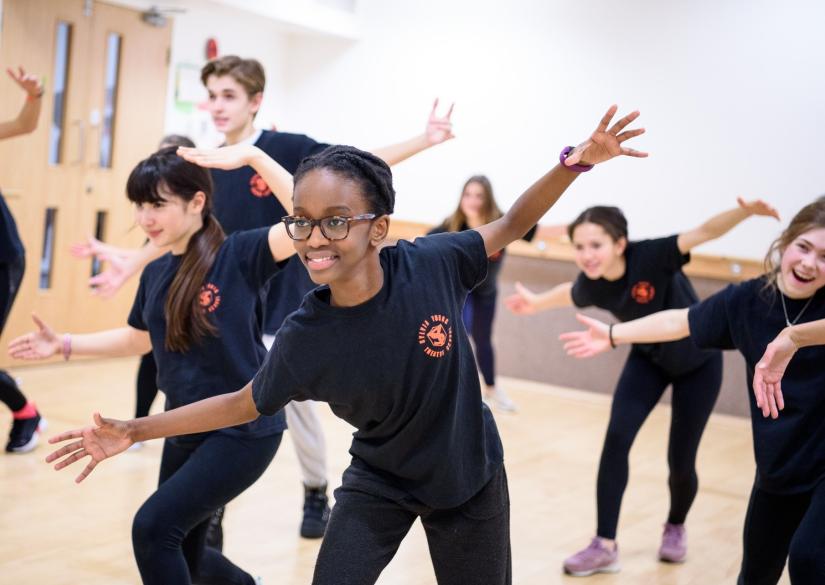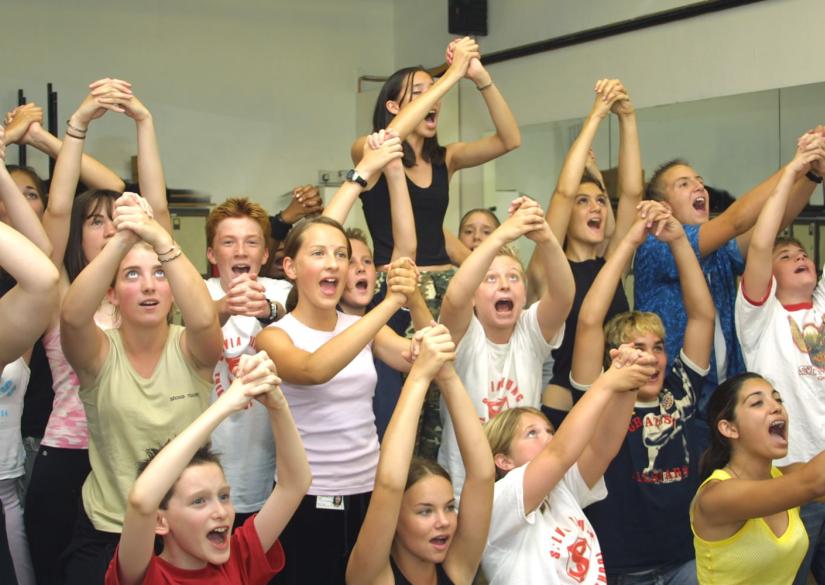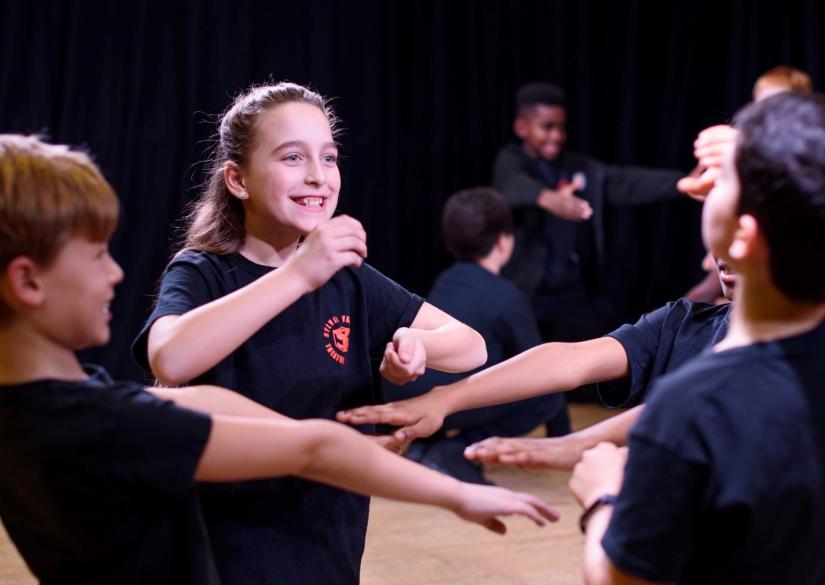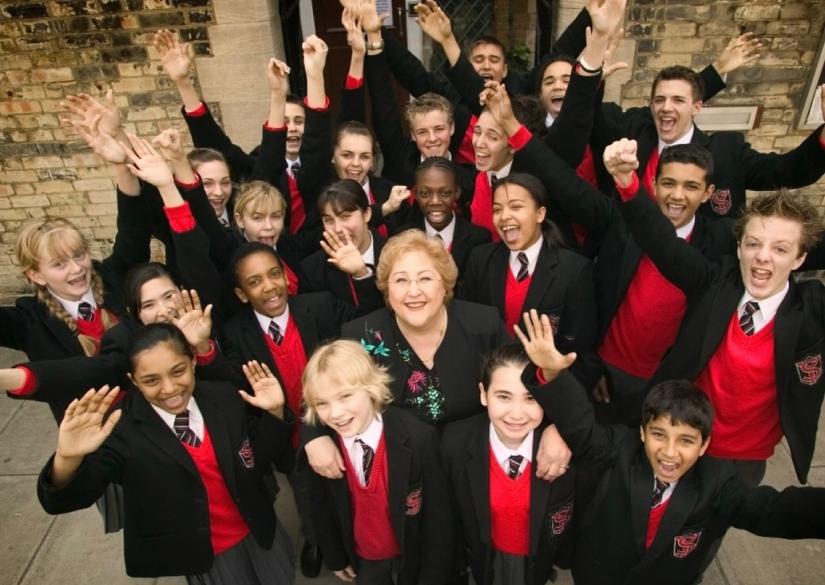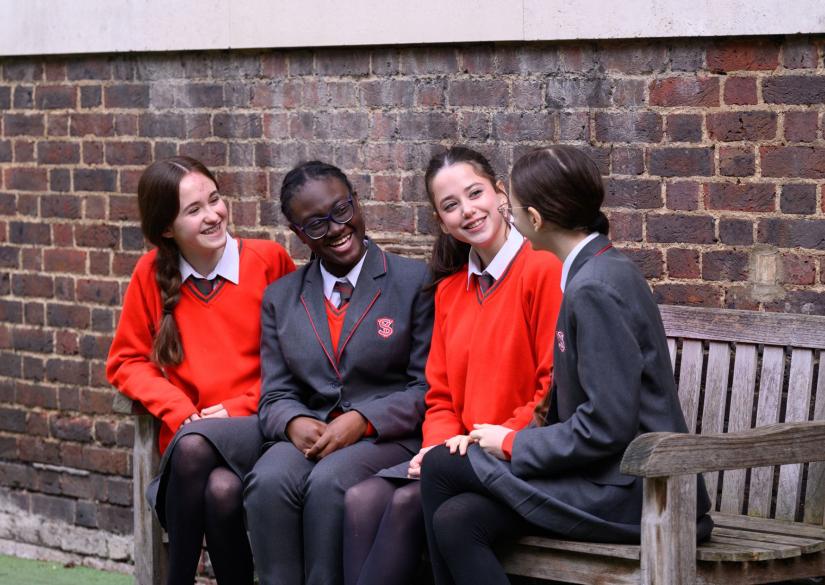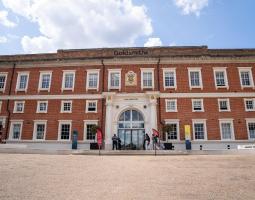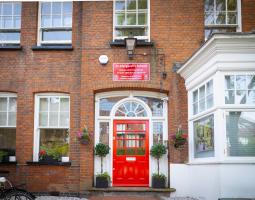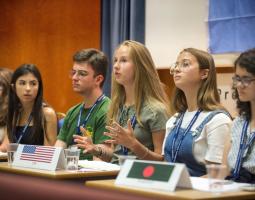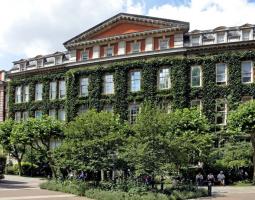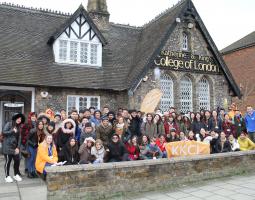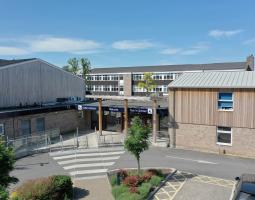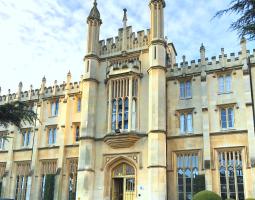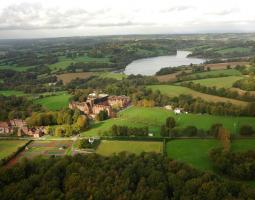Sylvia Young Theatre School, Sylvia Young Theatre School
Programs and prices, tuition fees in Sylvia Young Theatre School, Sylvia Young Theatre School
Full Time School
- Student age — from 10 years old.
The school week is divided into two parts: 3 days of theoretical lessons and 2 days of practical sessions. From Monday to Wednesday, children study academic subjects, while Thursdays and Fridays are dedicated to practicing performing arts (drama, dance, singing), simultaneously developing their individual creative skills. The school day starts at 8:45 AM and ends at 4:00 PM.
In the full-time learning format at Sylvia Young Theatre School, children are given a minimum of one homework assignment per week for each subject. These can be small tasks with a deadline of 1–2 days, or sometimes more substantial projects, especially at GCSE level, which students prepare throughout the week or longer. In grades six and seven, completing homework assignments for each subject should take an average of 30 minutes, and by grade ten — one hour.
The school has a detailed assessment system that includes regular reports. At the end of each term, parents are briefly informed about their children's progress. A comprehensive test is always conducted during the summer period to check the level and quality of the material learned.
At the end of year 11, students are well prepared to take 8 or 9 subjects in GCSE exams.
Part Time Classes
- Student age — from 4 to 18 years old.
Studying in a part-time format at Sylvia Young Theatre School is divided into 3 terms:
- Academic foundation: first-class training in singing, acting and dancing for children from 4 to 18 years old.
- Thematic programs. Each age group studies a central theme that covers all 3 disciplines: singing, theater arts and dance. Based on their profile, classes prepare for a special presentation that will take place at the Open Day for parents.
- Certificate preparation: at the end of the summer semester, all students receive certificates of successful completion of the curriculum.
Throughout the year, teachers pay special attention to quality education, not just creative productions or official exams. All lessons are aimed specifically at the professional development of students, strengthening their self-confidence, improving communication skills and creative abilities.
Parents and guardians can attend classes at the end of each term to see firsthand the progress and projects in which their child participated.
Young children and teenagers are taught by teachers who also work in full-time academic classes, as well as invited practical experts.
Three academic areas are highlighted:
- Drama. Classes are based on improvisation and general principles of stage art; in lessons, students develop acting skills by inventing plots and creating characters, working with scripts.
- Vocals. Classes are aimed at developing technique and expanding repertoire, including both popular music and classical musicals.
- Dance. The school's unique style is a mix of hip-hop, jazz and street dance. Classes are focused on developing style, technique, performing skills, rhythm, and accent accuracy.
Holiday Courses
- Student age — from 7 years old.
Weekend courses at Sylvia Young Theatre School are taught by permanent teachers and experienced invited experts from the theatre industry. The main task of the academic programs is to provide students with intensive professional training that will increase their self-confidence, improve communication skills and help develop individual talents.
To enroll in any thematic course, an audition is not required; both beginners and experienced students can become students of the weekend program.
All students are looking forward to a fun, friendly and favorable atmosphere — it’s an ideal place to learn new skills and make friends with shared interests.
Classes are held in the school building on Natford Place, London W1; only students aged 16 and over who have written permission from their parents or guardians can leave it during the lunch break between lessons.
Adult Classes
- Student age — from 18 years old.
Adult courses at Sylvia Young Theatre School are suitable for all students over the age of 18 and are not tied to a specific level of basic training. The thematic programs at the school help those who want to develop acting skills and gain confidence as a creative expert.
Acting classes are based on improvisation and script work, including general information about stage art and performance. During lessons, students develop their ability for stage play by inventing scenes and creating characters.
Typically, one course lasts six weeks.
Description of Sylvia Young Theatre School, Sylvia Young Theatre School
- Location: London, England,
- Year of foundation: 1981,
- Language of instruction: English,
- Type of education: mixed.
Sylvia Young Theatre School — is a specialized secular school of performing arts offering a high standard of academic and professional education. Children and teenagers aged 10 to 16 are accepted into the training courses, in classes from 6th to 11th grade.
The school is small in size, with around 250 students, and has a family atmosphere.
The director is a member of the Association of Independent Schools, and the school itself is accredited by this organization.
Educational process
Students of Sylvia Young Theatre School who choose full-time study should be prepared for intensive classes three days a week.
Each new student at the school is assigned two mentors from among their peers and senior students: they are always in touch with each other and provide assistance when needed. This approach to adapting new students helps international students get settled into the British school more quickly.
Things to know about
- Among the graduates of Sylvia Young Theatre School are many famous actors and musicians: Nicholas Hoult, Nick Picard, Nicola Stapleton, Nicole Appleton, Poppy, Preya Kalidas, Renee Downer, Rita Ora, Robert Madge, Sam Callaghan, Samantha Womack, Scott Robinson, Sheri Murphy.
- The school was founded in 1981 on Drury Lane, and moved to a former church parish school building from 1880 in Marylebone in 1983. In July 2010, it changed its location again and found itself in a new premises on Nutford Place, near Seymour Place in the W1 area.
- Academic and professional uniforms are supplied by Price & Buckland. Students wear school uniform from Monday to Wednesday, and professional attire (such as sportswear or dance outfits) — on Thursday and Friday.
Accommodation, meals, prices
The Sylvia Young Theatre School campus has a cafeteria offering a wide selection of food and drinks daily. The administration carefully monitors to ensure that potential allergens do not enter the kitchen, so there are no nuts or dishes containing them in the cafeteria. To further protect the health of students, the administration asks children not to bring nut-containing foods from home.
Advantages
- Sylvia Young Theatre School students can study both offline (in person) and through an online platform.
- The institution has no restrictions or privileges for students based on their race, social class, gender, or religious beliefs — all students are equal.
- The basis of education and campus life is built on 5 core principles: self-discipline, mutual respect, cooperation, understanding, and responsibility.
- Study groups are small: in Sixth Form the number of students usually varies from 10 to 12 people. From year 7 to 11, classes are divided into two groups, each with 20 to 24 students. Each group is accompanied by a tutor who monitors the progress of all students. Mentors regularly hold tutoring sessions during which children and teenagers can receive group and individual assistance.
- Career guidance tests and courses are held in senior classes.
- A nurse works on campus daily, who is responsible for identifying, monitoring and supporting the physical and mental health of students. All pupils have a personal medical record containing all information about the child's condition, and teachers take this information into account when working with children.
- Proprietary support systems are provided for psychological assistance to students.
Facilities and equipment at Sylvia Young Theatre School, Sylvia Young Theatre School
The Sylvia Young Theatre School grounds feature an educational building with two floors dedicated to theoretical lessons, master classes and practical exercises:
- 11 professional studios,
- an art room,
- rehearsal halls,
- two science laboratories,
- a recording studio,
- 12 lecture halls,
- Two computer classrooms.
In addition, the building has a large cafeteria, and outside it there is a garden and two inner courtyards.
Admission dates and extra charges
Children and teenagers can attend thematic courses at Sylvia Young Theatre School in a full or part-time format. In both cases, the academic year is divided into 3 trimesters with starting days:
- in September,
- in January,
- in April.
The list of additional expenses for parents of students includes:
- payment for school uniform,
- deposit upon admission.
Institution on the map
Residence permits, citizenship and other services
- Guardianship services during the studies
- Student supervision
Review about Sylvia Young Theatre School, Sylvia Young Theatre School
Recommendations on when to apply
| Language courses, schools and children's language camps | Primary and secondary education - private schools | Preparation programmes for entering universities - higher education | Higher education (after completing accredited programs A-level, IB, High School) - Bachelor, Master, MBA |
| - we recommend to apply 6-9 months before the start of the course (some camps and schools offer discounts for early booking or for lengthy study programs) - there are some very popular and high demand children's camps, where the applications need to be submitted 1 year in advance (in particular Switzerland , Great Britain , USA , Canada , Austria) | - we recommend to apply one year before the start of the training program, - some schools have a specific time frame (September-November - please specify an individual school) - some schools require tests in several stages (UKISET, internal tests of the school: English, mathematics, logics, subjects, interview, some require a personal visit) | - we recommend to apply one year before the start of the program, - for Foundation and Pathway programs, IELTS and TOEFL certificates are usually required, respectively | - recommended submission one year before the start of the program, - the deadline normally closes in January, for TOP HEIs and, as a rule, in March in other universities - for a bachelor, a Foundation or Pathway preparatory program a completed A-level, IB, High School + IELTS / TOEFL are required - for Masters you need a graduated higher education, in some cases you need a pre-Masters program - MBA requires completed higher education, work experience preferably at least 2-3 years, etc. |

